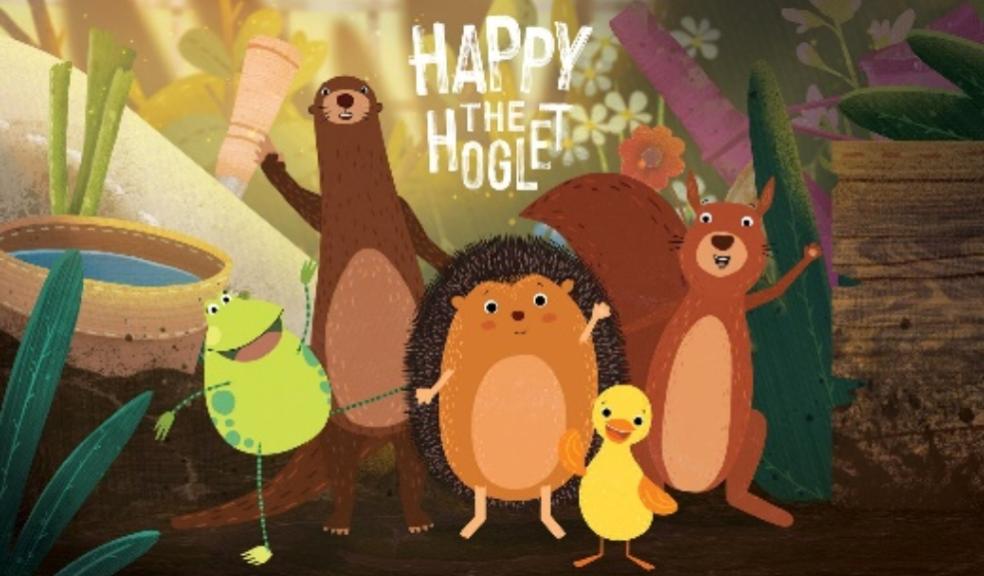
New TV show helps toddlers navigate their daily moods
‘Hangry’, frustrated, scared, sad, happy… New TV show helps toddlers navigate their daily moods
Every parent knows toddlers can experience a steep rollercoaster of emotions daily. Now a new TV show launching on 14 November aims to help young children grasp and accept their feelings.
And for parents practising #gentleparenting (the hashtag has now attracted +2.6 billion views on TikTok), this show also aims to kickstart family conversations about emotions and how to understand them.
Happy the Hoglet airs from 14 November across the UK every weekday at 10:40am on ITV’s littleBe and in the Republic of Ireland on RTÉjr at 8am, 12:10pm and 15:30.
Happy is a baby hedgehog character who is sometimes grumpy, often smelly and has fleas! He lives on an allotment with his other animal friends. If he can make friends, anyone can.
Like every child, Happy has good times as well as bad. He experiences the full sphere of human emotions, gradually learning how to build inner strength by tackling his big feelings and growing positive ones.
Kindness, empowerment and humour are at the heart of the show. Each episode is built around gentle life lessons exploring different emotions and showing young children how to acknowledge, accept and share their feelings.
Endorsed by Child Expert:
Dr Sam Wass, child psychologist and star of The Secret Lives of Four/Five/Six Year Olds and a parent of two toddlers, comments:
“It’s very common for a young child to experience a range of emotions without actually understanding what it is that they are feeling. It’s not something that we teach them at school! New research suggests children’s ability to understand and communicate how they are feeling is an essential first step in learning to manage their emotions in later life. Which is why watching Happy can play a vital role in children’s development. Through simple, beautiful and easy-to-follow stories, it teaches children what joyful and difficult emotions are, and that all feelings will pass. Every child experiences an emotional rollercoaster - so it’s something they should sit down and watch!“
Tips for dealing with toddler tantrums - from Dr Sam Wass:
‘’Toddler tantrums can be triggered by a wide range of reasons – sometimes logical, some not e.g. – because you won’t let them pour apple juice on the cat!
If you have a toddler that is struggling to cope with moods, it can be reassuring to know that there are things you can do to help, instead of just saying ‘no’. How to respond depends on what type of mood it is.
Anger:
When toddlers cry it can feel like you’re the reason. The most common reaction is to try and use logic. Toddlers’ language abilities often lag behind their anger so at the time of the tantrum, it’s most effective to empathise with your child and save reasoning for later.
Frustration:
When your toddler has tried to do something a few times, but it keeps going wrong, they normally repeat the same strategy over and over again. Except they do it faster and with more anger, which means it's certain not to work! A much better strategy is to say 'ok that didn't work, let's try it again, but differently.
Afraid:
Toddlers get scared of things in a similar way to adults. An irrational fear of spiders is a rational fear that seeing a spider makes you feel panicky. The best cure is to expose your toddler to the thing that they’re scared of in a calm way. We go on daily tours around the garden with my kids, stopping calmly and having a chat with all the spiders.
Loneliness:
One driver of separation anxiety and loneliness is that your child likes having control of when you’re there. It is unsurprising that when parents give in to check on their child it often makes the situation worse. Make sure they know their schedule, knowing their day in advance can help children to cope.
Sadness:
When my toddler Freddie gets sad it’s like he’s unable to see anything else. Fixing the problem by giving him what he wants doesn’t help to shift this. Instead, encourage them to focus on the outside world. Especially things they enjoy looking at when they’re in a good mood - whether it’s pretty flowers or the pictures in their favourite book.”














